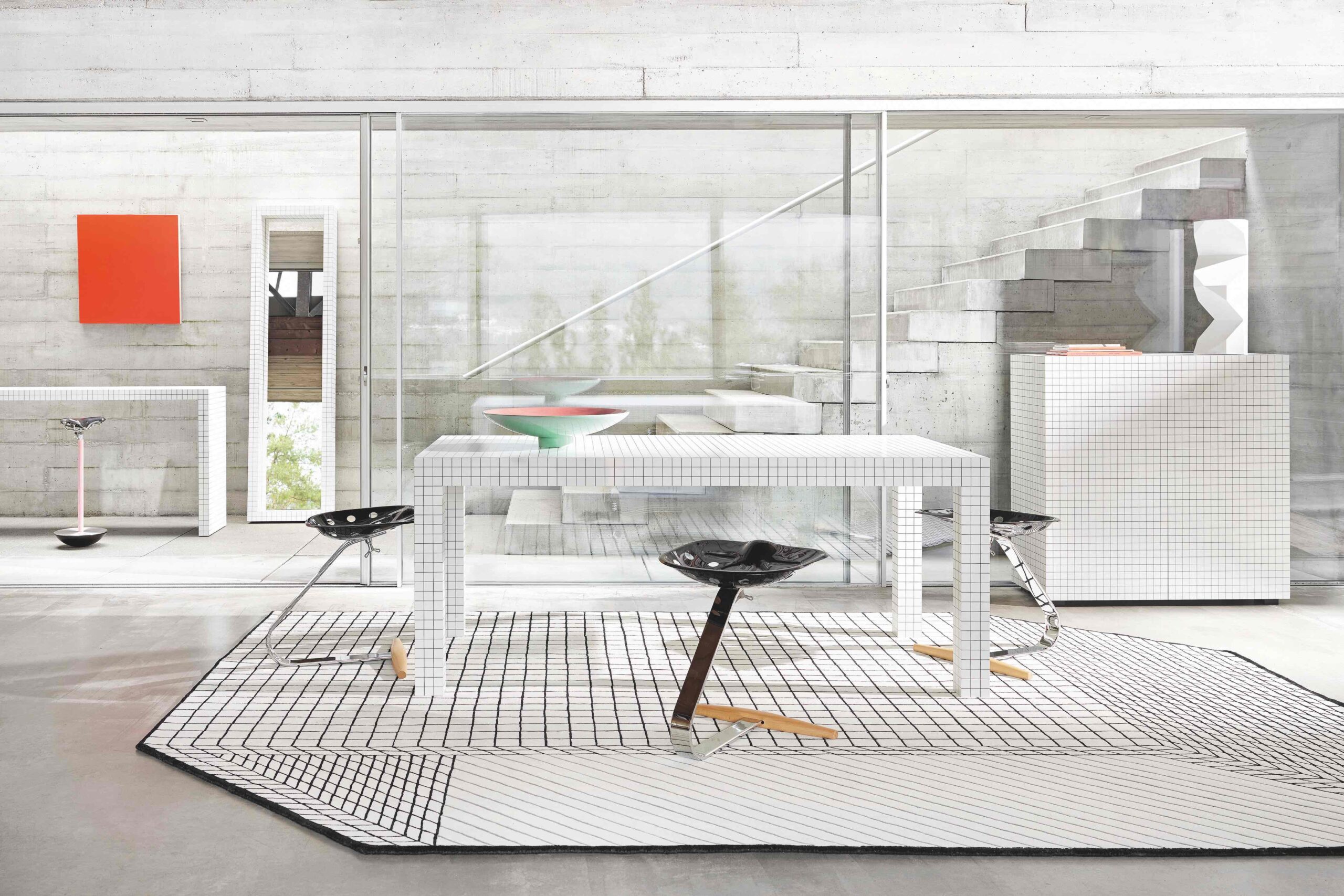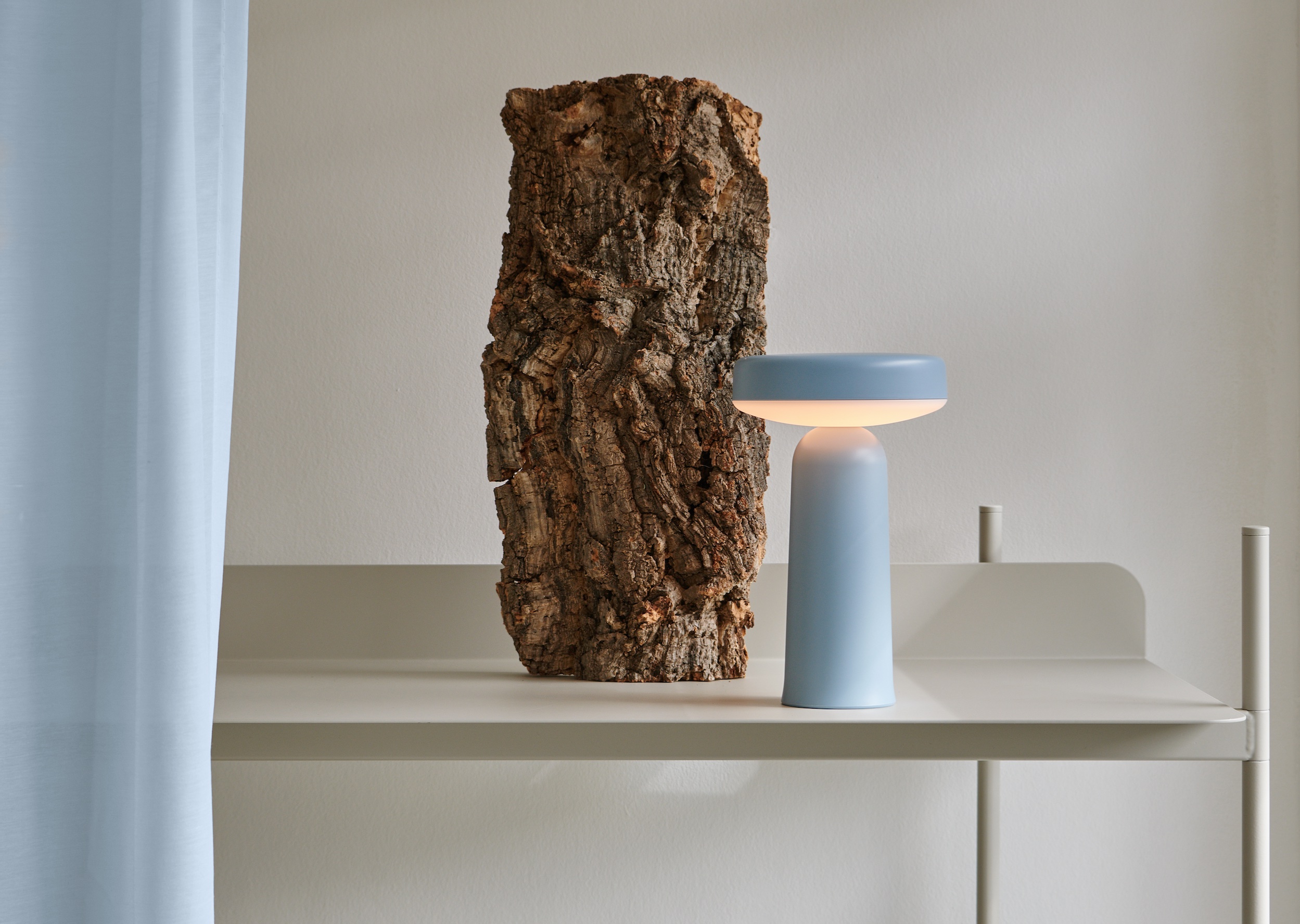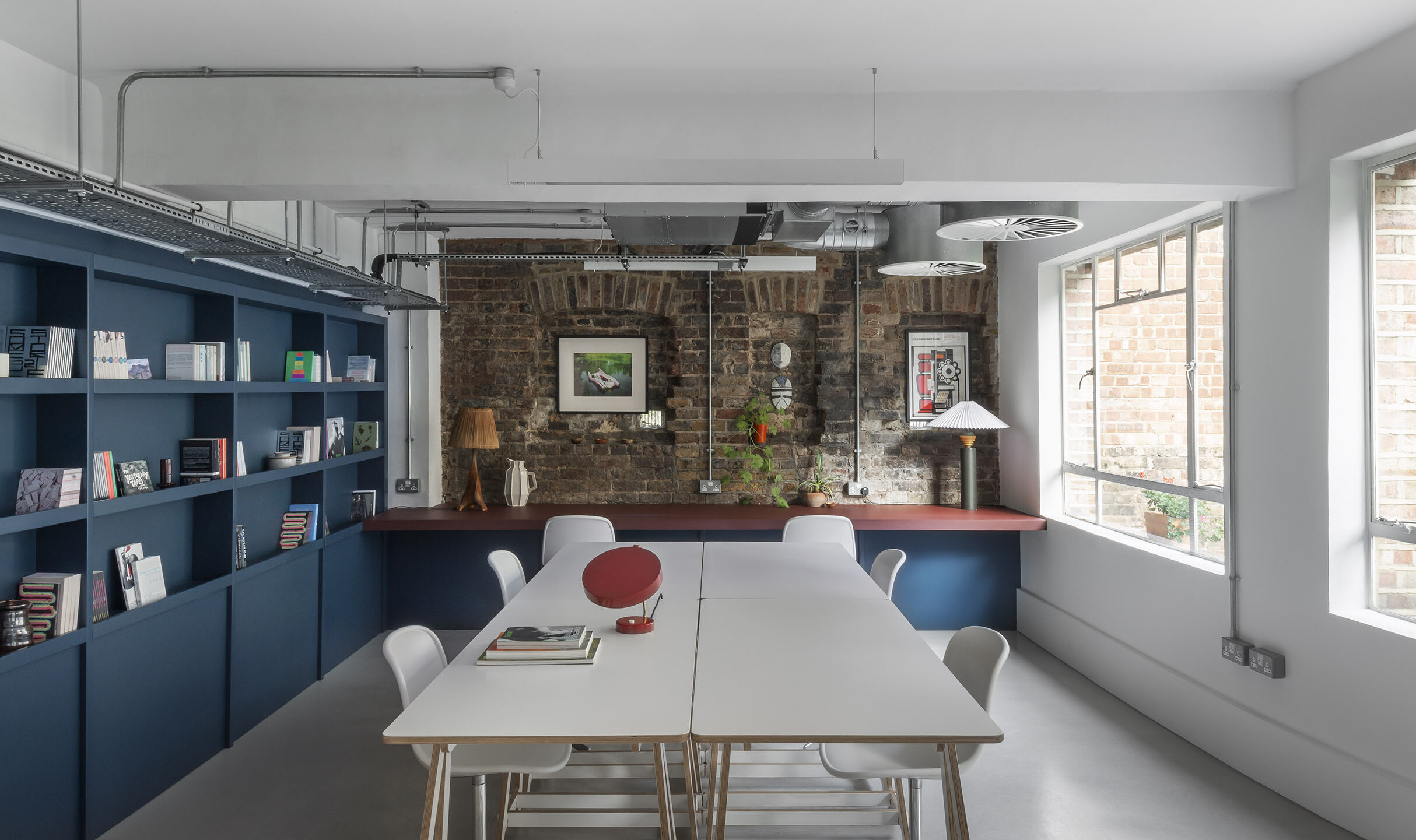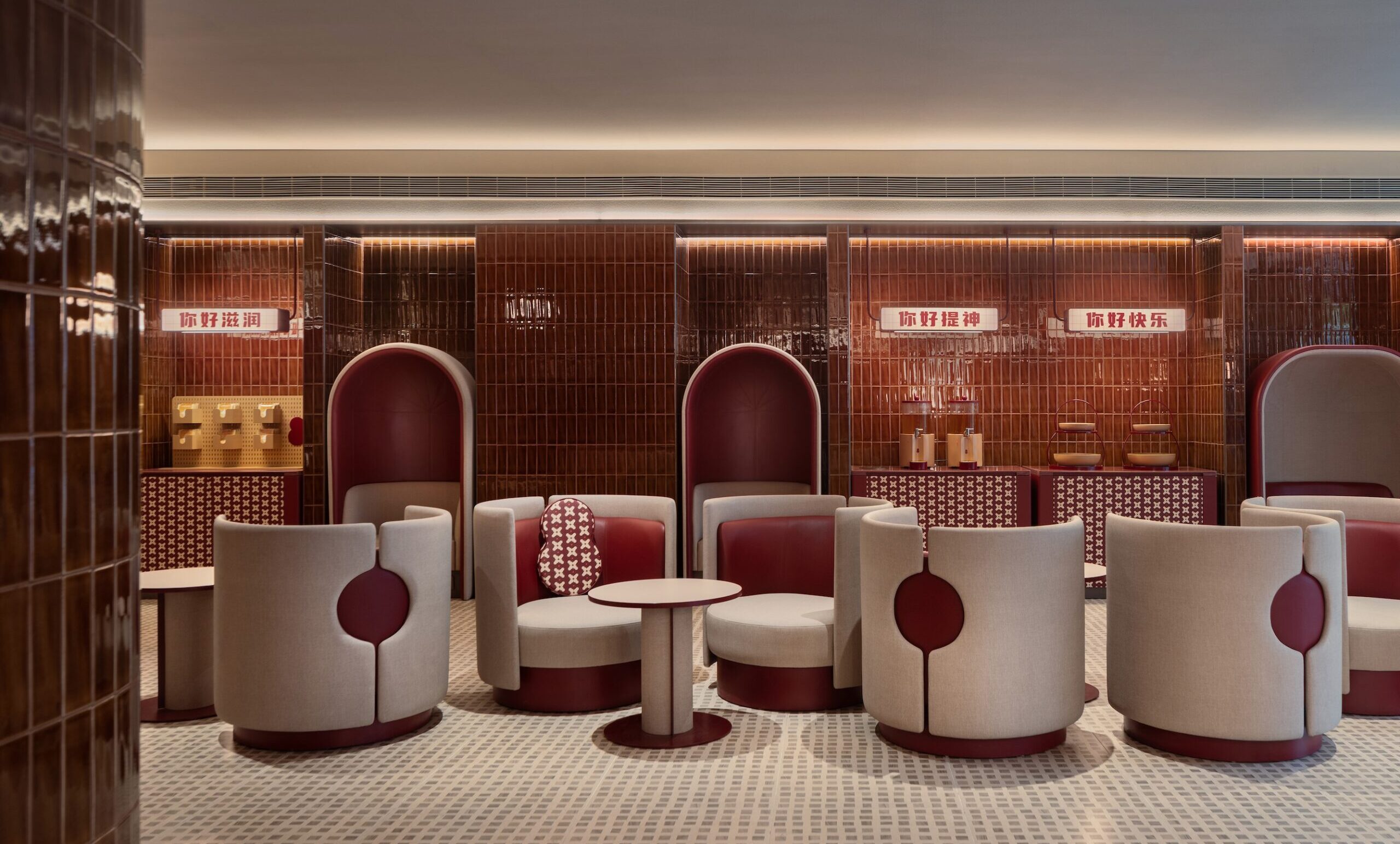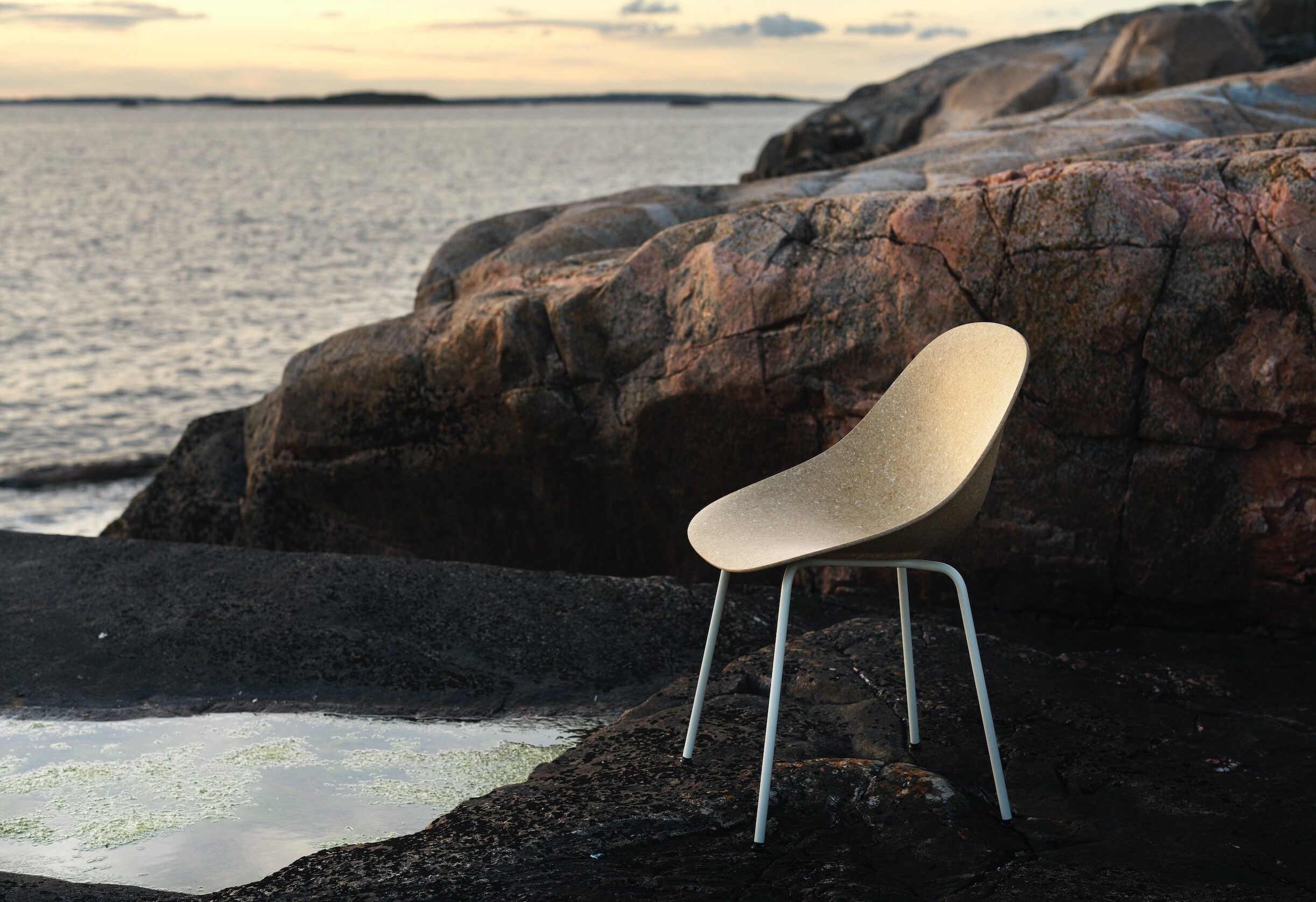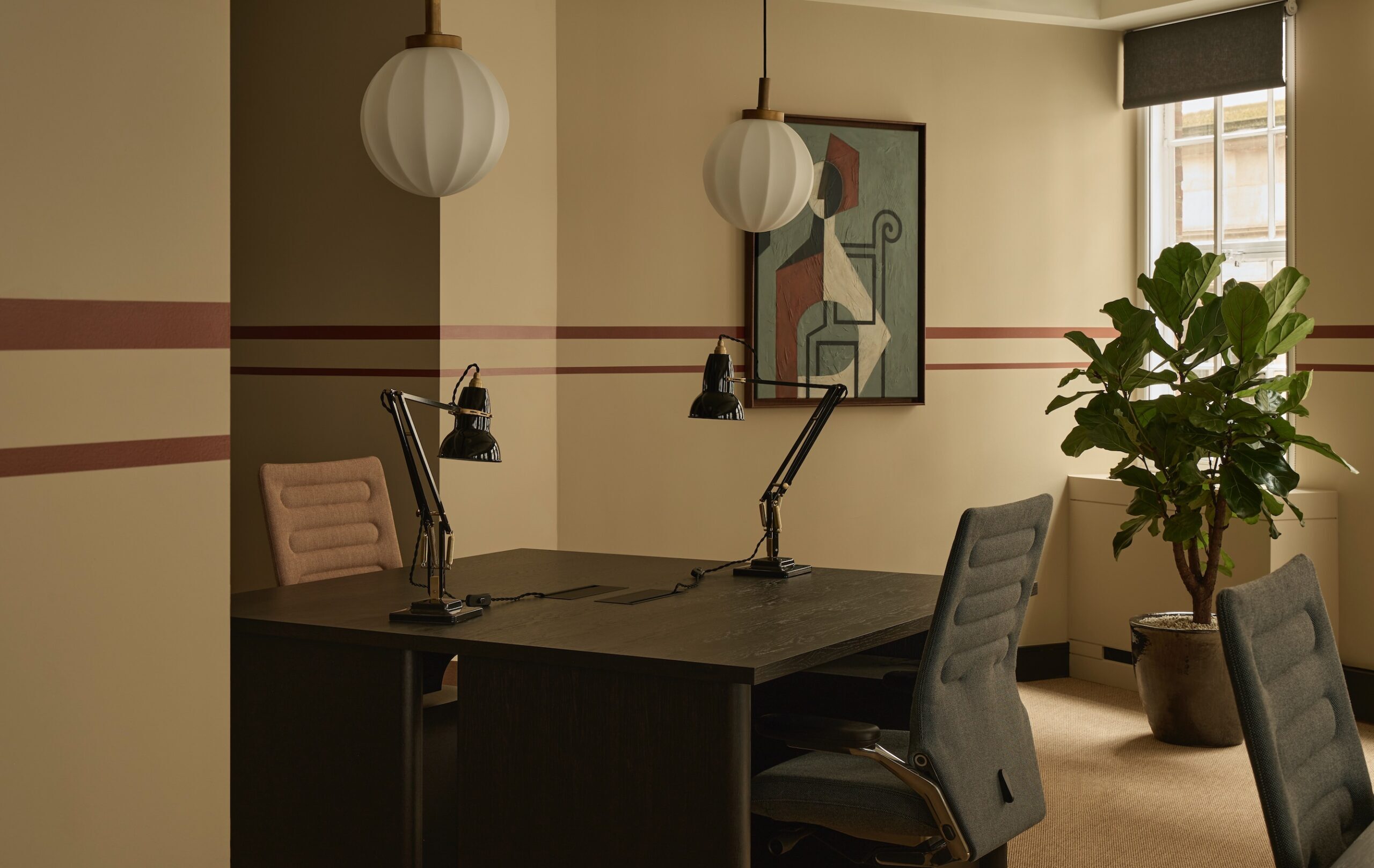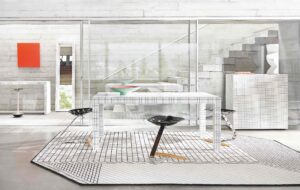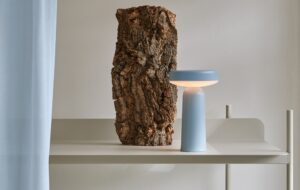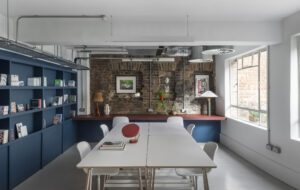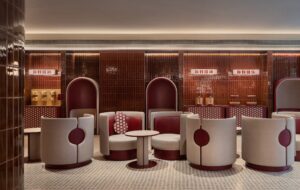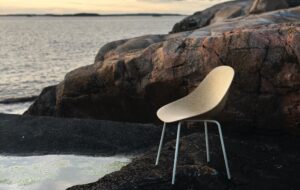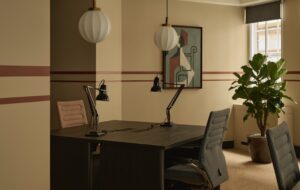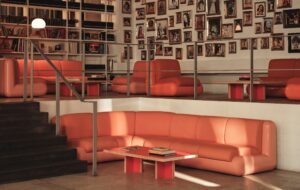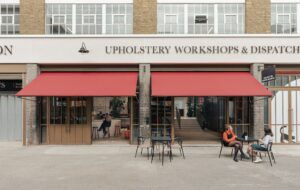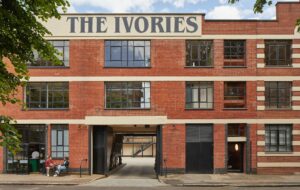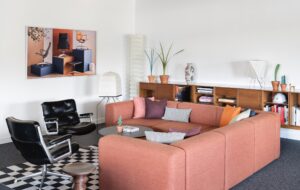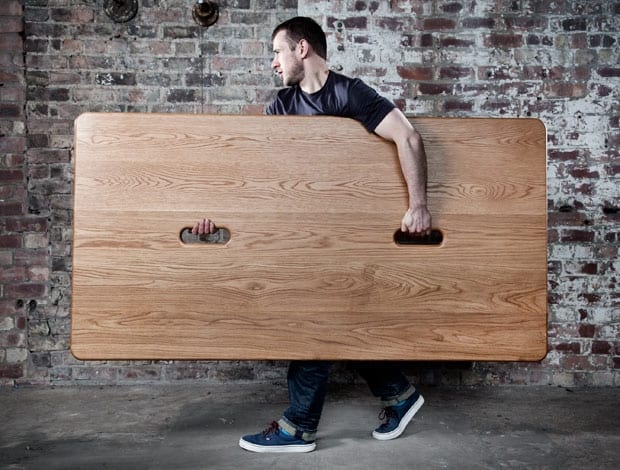 David Irwin – masked by his Working Girl table for Deadgood|The steel and oak Working Girl range also includes a stacking chair|Irwin showed a folding oak veneer chair at ICFF in May|The cordless M Lamp was inspired by miners’ lamps|Rivet, a new line of lighting for Brooklyn design firm Juniper|Dare Studio’s slender-framed Tor stackable armchair, which comes in oak, ash or walnut|Deadgood saw the Working Girl stool while Irwin was on Northumbria’s postgrad programme|Deadgood saw the Working Girl stool while Irwin was on Northumbria’s postgrad programme|Urwin’s Tyneside Lounger for Deadgood|Urwin’s Tyneside Lounger for Deadgood||
David Irwin – masked by his Working Girl table for Deadgood|The steel and oak Working Girl range also includes a stacking chair|Irwin showed a folding oak veneer chair at ICFF in May|The cordless M Lamp was inspired by miners’ lamps|Rivet, a new line of lighting for Brooklyn design firm Juniper|Dare Studio’s slender-framed Tor stackable armchair, which comes in oak, ash or walnut|Deadgood saw the Working Girl stool while Irwin was on Northumbria’s postgrad programme|Deadgood saw the Working Girl stool while Irwin was on Northumbria’s postgrad programme|Urwin’s Tyneside Lounger for Deadgood|Urwin’s Tyneside Lounger for Deadgood||
David Irwin’s beautifully crafted wooden furniture could sit inconspicuously amid classic pieces, and his lighting is inspired by the industrial revolution, yet he is a truly 21st-century designer.
After graduating from Northumbria University in 2007, his next two years were spent in the Newcastle institution’s postgraduate incubator programme for fledgling creative entrepreneurs. The M Lamp, perhaps his best-known product after Deadgood’s Working Girl range, was launched on Kickstarter. And, despite it not coming naturally, his social media prowess has galvanised his personal brand.
“Design and making are what drive me, but the business side of [being a designer] has been a slower progression,” he admits. “I like to approach marketing and business development like a design brief, to trick myself into it.”
Despite cutting his teeth in such a modern fashion, Irwin’s timeless aesthetic is explained by its roots in good old-fashioned furniture making. He grew up in Northern Ireland, where his dad’s amateur back-garden workshop (and tales of his cabinet-maker great-grandfather) instilled ambitions for a hands-on profession. Northumbria’s reputation drew him eastwards, and three years later his career flew quickly off the starting blocks at the New Designers show, when his Jed chair was spotted by Habitat’s then design director Bethan Gray.
Emblematic of his future work, Jed blends pared-back form with traditional grace, and a clever little buttoned tab that fixes the upholstered cushion. It was licensed to the British retail brand and remains in its catalogue today.
“That was my first taste of the design industry,” he says, mentioning that he has kept in touch with Gray. “I usually see her at shows. It’s great she’s doing phenomenally well on her own now.”
At Northumbria’s Designers in Residence programme for postgraduates, his making skills were honed while he began to focus more on how to build his business. For a graduate designer, the industry can seem out of reach; Irwin feels this kind of initiative is invaluable yet rare.
“For a lot of universities it’s a money-making exercise, getting students in and out the door,” he says. “You come to the edge of a cliff and it’s like, ‘you’re on your own now.’ But [at Northumbria] there’s a lot of aftercare, and I’ve landed on my feet.”
Deadgood’s Dan Ziglam and Elliot Brook were recent alumni and, while visiting to teach, one of Irwin’s designs caught their eye – the Working Girl stool. “Dan immediately saw its commercial potential,” says Irwin of the design, which has been developed into tables, benches and chairs, including an upholstered version launched at Clerkenwell Design Week (CDW) in May.
Its utilitarian yet charismatic form – an oak top married to powder-coated steel legs, with an aperture in the top to make it easy to carry and stack – has made it Deadgood’s best-selling collection to date, and the brand has continued to work closely with Irwin, sharing studio and workshop space in Newcastle, and mentoring him as a designer.
Irwin’s time on the Designers in Residence course also afforded him a meeting with Brooklyn-based brand Juniper, which would go on to produce the M Lamp, a cordless task light. Exhibiting collectively with his peers at New York’s ICFF under the name Tools for Everyday Life, Irwin met Juniper’s founders, who were only just setting up the company. Soon after, they began to develop the light, whose design is driven by advancements in LED and battery technology.
The M Lamp’s cylindrical base and carry handle were inspired by George Stephenson’s early-19th-century miners’ lamp, while its articulated conical head echoes the shape of a miner’s headlamp. By adding friendly proportions and soft lines, Irwin has given the product a distinct personality and created a functionally unusual product with broad appeal across the home and contract markets, especially outdoor hospitality projects, apparently.
Though now fully in production, it took a while to get off the ground. Looking for ways to finance the project, Juniper opted to launch it on Kickstarter, which at the time was in its infancy. According to Irwin, it was a success even though it didn’t actually reach its funding target.
“In retrospect, we were naive about the Kickstarter US market, which was more tech-orientated than design-orientated,” says Irwin, “but a really good side effect was that a lot of tech aficionados were engaging with us, telling us how we should be doing things. It helped with the development, and marketing, which gave Juniper the confidence to go out and get investors.”
Irwin’s new lamp for Juniper, Rivet, takes the industrial theme further with a spun copper shade on the same chunky cylindrical base, as well as metal pendant lamps.
Meanwhile, Irwin’s portfolio has grown in a controlled way – he is conscious not to just work with anyone, but with companies who have aligned beliefs and values with his own. Dare Studio is one of his latest clients, which launched Irwin’s Tor stacking chair, also at this year’s CDW. It is minimal but classical, durable enough for the contract market but with Irwin’s inherent design warmth.
“Everything I do is about reducing unnecessary form, but it’s about finding that tension between stripping things back and bringing out the character,” he says, “not going too far, where you take the value and beauty out of it.”
He’s also working with a new company called DE.SK, designing a modular desk aimed at mid-sized businesses; the company will produce accessories and products based on and around the desk, with Irwin’s design at its core. At ICFF he also launched a natty oak folding chair, for which he’s currently looking for a manufacturer (it’s likely to be snapped up fast). There’s also more in the pipeline with Deadgood, Dare Studio, Juniper and some brand new top-secret clients, plus his first interiors project.
All is being taken in the humble-yet-confident designer’s stride, as he describes his take on his own successes: “Some of it is experience, some of it is instinct, some of it is just having a go and seeing what happens.”

